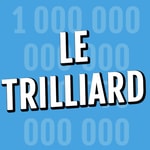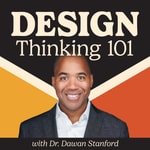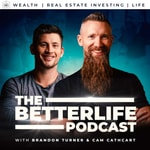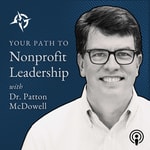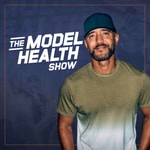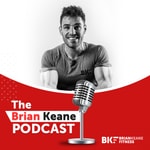Psychedelic Medicine Podcast with Dr. Lynn Marie Morski – Details, episodes & analysis
Podcast details
Technical and general information from the podcast's RSS feed.
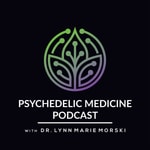
Psychedelic Medicine Podcast with Dr. Lynn Marie Morski
Lynn Marie Morski, MD, JD
Frequency: 1 episode/12d. Total Eps: 178

Recent rankings
Latest chart positions across Apple Podcasts and Spotify rankings.
Apple Podcasts
🇨🇦 Canada - mentalHealth
18/06/2025#86
Spotify
No recent rankings available
Shared links between episodes and podcasts
Links found in episode descriptions and other podcasts that share them.
See all- https://www.porangui.com/
178 shares
- https://maps.org/
121 shares
- https://www.instagram.com/eastforest
378 shares
RSS feed quality and score
Technical evaluation of the podcast's RSS feed quality and structure.
See allScore global : 62%
Publication history
Monthly episode publishing history over the past years.
Understanding Psychedelics and Neuroplasticity with Robin Carhart-Harris, PhD
Season 1 · Episode 180
jeudi 12 juin 2025 • Duration 44:46
In this episode, Robin Carhart-Harris, PhD joins to elucidate the intersection of psychedelics and neuroplasticity. Dr. Carhart-Harris is the Ralph Metzner Distinguished Professor in Neurology and Psychiatry at the University of California, San Francisco. Robin founded the Centre for Psychedelic Research at Imperial College London in April 2019, was ranked among the top 31 medical scientists in 2020, and in 2021, was named in TIME magazine’s ‘100 Next’ – a list of 100 rising stars shaping the future.
Dr. Carhart-Harris begins by discussing the impact of psychedelics on neuroplasticity and mental health. He explains neuroplasticity as the brain's ability to change, emphasizing its role in mood disorders and substance use and describes how stress atrophies the brain, leading to mental illness. Dr. Carhart-Harris differentiates between neuroplasticity and neurogenesis, noting that while neurogenesis is limited in adults, neuroplasticity can be influenced by psychedelics like ketamine, psilocybin, and MDMA. In closing, he also discusses the entropic brain hypothesis, suggesting that increased brain entropy leads to richer subjective experiences.
In this episode, you'll hear:
- The relationship between neuroplasticity and “canalization”
- Why homeostatic neuroplasticity may promote mental wellbeing
- Differences between ketamine, MDMA, and serotonergic psychedelics in terms of neuroplasticity
- The details of the entropic brain hypothesis
- Psychedelics’ effect on the default mode network
- The frontiers of research into psychedelics and neuroplasticity
Quotes:
“So changeability is what plasticity is. And neuroplasticity—that's the ability of the brain to change. Okay, and how is neuroplasticity related to mood disorders like depression and anxiety or substance use disorder or something like that? Well, that's a great question cause we don't have it entirely nailed down. But one of the most reliable findings in biological psychiatry is that stress atrophies the brain.” [2:47]
“The main thing with ketamine is that the window of increased plasticity is brief… That makes sense because that reflects how ketamine seems to work therapeutically—that it provides relief somewhat short-term, unless it is twinned with, say, psychotherapy or you do repeat administration and get someone out of the rut they were in.” [22:15]
“We’ve seen in people with depression, brain networks can become quite segregated from each other—they are ordinarily, they’re quite functionally separate and distinct—but that modularity might be a bit elevated in depression. But what we’ve seen with psilocybin therapy is that separateness between systems, that segregated quality of organization of brain networks, brain systems actually decreases after psilocybin therapy for depression. I’ll put it another way: the brain looks more globally interconnected after psilocybin therapy for depression and the magnitude of that… correlates with improvements.” [39:19]
Links:
Myths and Misconceptions About Psilocybin with Dori Lewis, LPC
Season 1 · Episode 179
mercredi 28 mai 2025 • Duration 42:32
In this episode, Dori Lewis, MA, MEd, LPC-S discusses the common myths and misconceptions surrounding psilocybin for healing. Dori is a psychotherapist, co-founder of Elemental Psychedelics, and owner of Reflective Healing in Fort Collins, CO, who specializes in psychedelic-assisted therapy, blending transpersonal psychology with spiritual practices. With experience facilitating ketamine sessions and training clinicians, she advocates for ethical standards in psychedelic medicine while championing a feminine-centered approach to facilitator training.
The first myth that Dori addresses in this conversation is the idea that it is the psilocybin mushroom itself that does all the healing work. Contrary to this common misconception, Dori suggests that it is the client’s own initiative working in tandem with the mushroom that really spurs healing. She also emphasizes that there are not any set protocols for how often psilocybin should be taken for healing, instead suggesting that clients should be guided to attune to their own internal intuition to determine when a psilocybin journey may be particularly helpful.
Another misconception Dori addresses is that healing with psilocybin can occur without causing deep transformations in one’s identity or shifts in one’s worldview. She suggests facilitators must be very transparent about these possible impacts to best prepare clients for these kinds of major changes that psilocybin can catalyze. In closing, Dori reiterates that clients should be supported and prepared to encounter intense emotional experiences with psilocybin, as some of the most difficult psychedelic journeys can actually be the most healing.
In this episode, you'll hear:
The biggest myths and misconceptions Dori encounters working with clients in her practice
The importance of a relational understanding of psychedelic healing
The specific types of trauma where psilocybin may be a particularly effective healing modality
The training for psilocybin facilitators in Colorado under the Natural Medicines Program and the importance of scope of practice
Why some people’s mental health gets worse before it gets better following a psilocybin experience
What can cause lack of response to psilocybin therapy and how better preparation can often mitigate this
Quotes:
“Mushrooms are amazing and they can help us in our healing journey. But they are one tool in a mosaic of other tools that we can use to help ourselves heal and grow and change.” [6:54]
“I don’t really know where this message came from—that mushrooms cure PTSD—but that is a huge myth. They can help—with certain types of trauma within the context of a healthy therapeutic relationship with a skilled provider, yes, at times when it is right. But ultimately the best medicine for trauma is going to be MDMA—and ketamine.” [18:18]
“It is the responsibility of providers and facilitators to inform clients of the realistic expectations they should have for their [psychedelic] journeys—and that is also an ethical need and something that facilitators need to consider through an ethical lens.” [25:20]
“There’s a lot to be said about the unique ways that mushrooms express through our bodies and through our minds and through our hearts that give us information about where we are at and where we need to work or continue to work in order to access the healing we so desire.” [37:34]
Links:
Elemental Psychedelics on LinkedIn
Elemental Psychedelics website
Previous episode: Integrating Challenging Psychedelic Experiences with Keith Kurlander, MA
Previous episode: The Challenging Psychedelic Experiences Project with Jules Evans
Previous episode: The Dangers of "Ayahuasca Told Me…" with Jerónimo Mazarrasa
Psychedelic Medicine Association
Encore episode: Avoiding the Traps of Psychedelic Self-Absorption with Adam Aronovich, PhD(c)
Season 1 · Episode 170
mercredi 22 janvier 2025 • Duration 01:08:52
In this episode of the Psychedelic Medicine Podcast, Adam Aronovich, PhD(c) returns to discuss issues of psychedelic self-absorption—and how to avoid these traps. According to Adam, he is a PhD candidate in medical anthropology, the creator and curator of Healing from Healing, a trophy husband and dad.
In this conversation, Adam revisits his previous discussion of psychedelic narcissism and explains why he’s now somewhat more critical of the term. However, Adam still sees issues around cultivating epistemic humility and acknowledging the political dimensions of healing in psychedelic contexts. He explains the issues he takes with forms of New Age, Neoliberal spiritual perspectives he sees as pervasive and typically unacknowledged amongst many engaging with psychedelics. He also discusses how some pop psychology terms have worked their way into the psychedelic realm and what impacts that has had.
In this episode:
- The “spectacle” of filmed psychedelic experiences on social media
- The intersection of medical and spiritual cultures in psychedelics and how this can create issues of access
- The cheapening and overuse of the idea of “trauma” in popular discourse and the birth of “traumadelic” culture
- Why approaches focusing on excavating supposed repressed traumatic memories from childhood should be approached with a degree of skepticism
Quotes:
“One of the main things with plant medicine—particularly when people are sharing about it—is that people want to be really vulnerable and people want to be very authentic… But at the intersection with the spectacle, that vulnerability and authenticity become part of the spectacle in the sense that they become 100% performative.” [19:01]
“The people who don’t have that modicum of self awareness and epistemic humility to really understand, with intellectual honesty, the scope of their understanding and knowledge, then it is very easy to overdo it. And then we do a disservice, not only to the actual traditions that we purport to be portraying, but also to the people that we’re working with.” [37:56]
“If you don’t understand that your healing is political, because individual health, and individual happiness, and individual everything is intrinsically related to collective health, and social health, and cultural health, and environmental health, then you need to go back to square one because you haven’t understood anything. ” [40:02]
“If we can’t even fathom that perhaps my own wellbeing is in constant dialogue with the wellbeing of a society, and the wellbeing of a culture, and the wellbeing of an environment—that nobody can be healthy and happy unless everybody else is relatively healthy and happy—then we are in big trouble and we haven’t really learned everything.” [40:20]
Links:
Healing from Healing on Instagram
Healing from Healing on Facebook
Society Of The Spectacle by Guy Debord
Wikipedia entry on the Satanic panic
Previous episode: Navigating Psychedelic Narcissism with Adam Aronovich
The Dark Side of Ketamine (and how to Stay in the Light) with Dr. Mark Braunstein
Season 1 · Episode 81
mercredi 17 mars 2021 • Duration 31:40
In this episode of the Plant Medicine Podcast, Dr. Mark Braunstein returns to discuss potential concerns surrounding the use of ketamine, especially use which is not overseen by a knowledgeable medical professional. Dr. Braunstein is a whole-health psychiatrist with 22 years of clinical experience. He is the medical director for multiple mental health and psychedelic psychotherapy clinics in Colorado, New Mexico, and Utah and he also runs in-patient and out-patient programs for addiction. Additionally, Dr. Braunstein is involved in multiple projects focused on expanding access, awareness, research, and safety in the field of psychedelics.
To begin this conversation, Dr. Braunstein shares how his original exposure to ketamine wasn’t in a medicinal context, but rather as a recreational drug of abuse. However, since then he has seen the transformative effects this substance can have on patients when used in a physician-directed context and for therapeutic purposes. Nonetheless, Dr. Braunstein stresses that this does not mean ketamine use does not come with certain risks.
Ketamine can be addictive and even carries a risk of overdose, particularly when used recreationally in a context where the purity of the substance is unknown. Dr. Braunstein distinguishes recreational and therapeutic uses of ketamine, explaining that recreational doses are often lower and dosing is more frequent, whereas ketamine is used in high doses in a therapeutic context, with extended periods between sessions.
Dr. Braunstein stresses both the responsibility of physicians and of patients to ensure ketamine is prescribed responsibly and used as directed. Despite the dangers posed by recreational ketamine use Dr. Braunstein describes in this conversation, it is still a medicine he believes can have significant positive impacts for patients. This requires, however, that it not be treated merely as yet another quick fix pill. Instead, Dr. Braunstein emphasizes that ketamine treatment ought to coincide with psychotherapeutic work. This combination, he says, will maximize the therapeutic potential of ketamine while also helping to ensure that the medicine is used responsibly, under the close direction of a medical professional.
In this episode:
- The addiction and overdose potential with recreational ketamine use
- How dosage can dramatically change the effects of ketamine
- Responsible prescribing practices for physicians working with ketamine
- The psychological and physiological harms of ketamine abuse
- How Dr. Braunstein talks to his patients about responsible use before prescribing ketamine
- The importance of combining psychedelic medicines with psychotherapeutic work
Quotes:
“Part of why ketamine works is because it lights up your brain in all these different ways and when done occasionally, intentionally, it moves you. But if you’re always doing that, it ends up having the reverse effect, causing damage.” [12:56]
“This is a heavy-duty medication that, if you cross the line, can cause you to stop breathing and then die. So there is an actual, real danger to ketamine.” [16:25]
“I think the organ that is most prone to damage from overuse of ketamine is the same organ we are touting it fixing: the mind.” [18:39]
“When we think about these medications, we should think about combining them with therapy and not just taking these medications as medications… So that’s why with ketamine I’m really recommending it with therapy.” [25:04]
Links:
Becoming an MDMA-Assisted Therapist with Shannon Carlin, MA, LMFT
Season 1 · Episode 80
mercredi 3 mars 2021 • Duration 46:36
This episode of the Plant Medicine Podcast features a conversation with Shannon Carlin, MA, LMFT, to discuss how to become an MDMA-assisted therapist, including a discussion of the MAPS training program. Shannon is the Director and Head of Training and Supervision at the MAPS Public Benefit Corporation (MAPS PBC), a wholly owned subsidiary of the Multidisciplinary Association for Psychedelic Studies (MAPS), a 501(c)(3) non-profit where she oversees the development and implementation of clinical training programs that prepare mental health and medical professionals to deliver MDMA-assisted psychotherapy in approved clinical settings. Shannon started working with MAPS in 2011 before joining MAPS PBC in 2016.
In this conversation, Shannon discusses her personal background and some of the nuances of psychedelic-assisted therapy. Shannon shares her experiences being trained as an MDMA facilitator in 2014 when this therapy was much less mainstream and mentions how much the program has grown and evolved since then. In discussing her own background with various forms of therapeutic work, Shannon emphasizes the unique client relationship obtained in the longer sessions of MDMA therapy, saying that this therapy is very well-suited to meeting people in their time of need.
Shannon also discusses the details of the 100-hour MDMA-assisted therapy training program she leads and supervises at MAPS. The program consists of an online course, a training retreat with senior MDMA-assisted psychotherapy researchers, and opportunities for experiential and didactic learning.
Shannon additionally touches on the topic of MDMA therapists-in-training undergoing this treatment themselves as a learning experience, stating that this is an opportunity MAPS tries to make available and that many of those who have had this opportunity found it beneficial to their future work with MDMA in a therapeutic context. In closing, Shannon discusses MAPS’ commitment to equity and mentions that some scholarships will be available for the training program.
The MAPS MDMA Therapy Training Program is now accepting applications from trained mental health and medical practitioners. To learn more, visit https://mapspublicbenefit.com/training
In this episode:
- How MDMA therapy differs from traditional talk therapy
- The importance of nurses and other paraprofessionals in MDMA-assisted psychotherapy
- The history of the use of MDMA in therapeutic contexts prior to prohibition
- Current training programs in psychedelic-assisted psychotherapy
- The future of legal MDMA use in therapy
- What skills translate from MDMA psychotherapy to other forms of psychedelic psychotherapy
- How to enroll in the next round of MAPS MDMA training
Quotes:
“Our training program really focuses a lot on the therapeutic relationship in MDMA therapy and the ways that that relationship changes, deepens, becomes more complex.” [13:20]
“As we do our training program we have a really multidisciplinary group. We have physicians and psychiatrists and we have nurses, we have psychiatric nurses, social workers, therapists, psychologists, clergy people.” [15:56]
“We work in a cotherapy model so every session has two providers in the room, so we always have one person who is licensed to practice psychotherapy and then we have flexibility about exactly what the role of the second person is.” [26:09]
“We’re looking at possibly MDMA-assisted therapy becoming a legal treatment medicine, not only in the US, but in multiple countries, even as soon as in the next two years.” [28:21]
“It’s really difficult to do healthy volunteer therapist studies because the FDA thinks about clinical trials in terms of treating a disease.” [35:21]
Links:
Psychedelics and Parenting with Rebecca Kronman, LCSW
Season 1 · Episode 79
mercredi 17 février 2021 • Duration 51:33
This week’s episode of the Plant Medicine Podcast features a conversation with Rebecca Kronman, LCSW on the intersection of psychedelics and parenting. Rebecca is a licensed therapist with a private practice in Brooklyn, New York, where she helps clients integrate and prepare for psychedelic experience, in addition to providing therapeutic care for clients struggling with mental illnesses such as anxiety or depression. Rebecca is also the founder of Plant Parenthood, which is an online and in-person community of parents who use psychedelics, plant medicine and cannabis looking to de-stigmatize the conversation around psychedelics and parenting.
In this wide-ranging discussion, Rebecca explores both practical and theoretical issues in the intersection of psychedelics and parenthood. The most controversial of these being, of course, minors using psychedelics themselves. Rebecca discusses the traditional cultural frameworks in societies which use psychedelics and how they handle this matter, contrasting this with the Western medical model where psychedelic use is highly stigmatized yet prescribing amphetamines to children is rather uncontroversial. Rebecca emphasizes that this is a topic which deserves more careful consideration, as ketamine treatments are already available and effective for treatment-resistant depression in teens.
She also discusses how psychedelics can help us reparent ourselves and heal generational trauma, both of which can aid in improving parents’ relationship to not only their children, but to their own parents as well.
In addition, Rebecca discusses some practical concerns, such as how parents ought to discuss psychedelic use with children. Here she draws a distinction between proactive and reactive conversations, the former being initiated by the parent, the latter by the child. Choosing to pursue a degree of proactive discussion with children around psychedelic use can have a positive impact, both in strengthening trust and openness between parent and child as well as preparing older children for encountering these things in their own lives as accessibility and awareness continue to increase. Rebecca closes this discussion talking about the high levels of scrutiny parents face socially, emphasizing the importance of parents having the opportunity to come together around this topic to determine the best solutions for their own families.
In this episode:
- The future of psychedelic medicines for minors
- How psychedelics can inform one’s approach to parenting
- Taking psychedelics with family members
- Including children in integration practices
- Proactive vs reactive conversations about substance use with children
- Plant Parenthood’s upcoming events
Quotes:
“It’s something that needs to be on our minds: how do we approach this topic without stigmatizing it so that when our children inevitably find out about it, we can have an open dialogue.” [11:39]
“A lot of the work of psychedelics, is the work of reparenting yourself. It’s the work of healing intergenerational trauma.” [16:49]
“For some parents it’s not a problem for their children to be around during their psychedelic experience itself, and for some parents they feel like ‘you know what, I want this time for myself–this is my time to go inward, to journey into my psyche, and I don’t want to be a parent during that moment.’” [24:25]
“We can start talking about plant medicine or substance use or addiction from the very earliest time our kids can understand.” [29:28]
“As kids get older it does become more important to be a bit more proactive because the reality is they will be exposed to this, especially as access increases.” [32:43]
“There is a level of scrutiny that parents face that is different than what other people face and it makes people more reticent to be honest and to approach these topics in a way that feels healing and that feels complete.” [41:29]
“[Psychedelics] make us be able to inhabit that open, neuroplastic state that children naturally inhabit. So in a sense, it makes us be able to understand them better. It makes us be able to get into their experience in a deeper way.” [46:42]
Links:
Psychedelic Apprenticeship: Validating Psychedelic Insights and Revelations with Chris Timmermann, PhD
Season 1 · Episode 78
mercredi 3 février 2021 • Duration 53:39
In this episode of the Plant Medicine Podcast, researcher Chris Timmermann, PhD joins to discuss his recent publication regarding psychedelic apprenticeship. Dr. Timmermann is a researcher at the Center for Psychedelic Research at Imperial College London where he conducted the first neuroimaging studies of DMT in healthy volunteers to explore potential mental health impacts. He is also the president and founder of the Foundation for the Study of Human Consciousness in Chile.
Dr. Timmermann’s paper "Towards psychedelic apprenticeship: Developing a gentle touch for the mediation and validation of psychedelic-induced insights and revelations" was recently published in December 2020 and it provides a framework for tackling the difficult problem of mediating knowledge gained during psychedelic experiences. In this conversation, Dr. Timmermann breaks down his article and discusses how different contexts for psychedelic use (such as therapeutic, neo-shamanic, and research) each come with their unique concerns in terms of the knowledge these experiences can induce.
Highlighting the fact that it is the same mechanism causing both therapeutic benefits and potential distress following psychedelic experience, Dr. Timmerman explains that psychedelic guides and even researchers can profoundly influence the content of a psychedelic experience. His framework for apprenticeship seeks to address how guides and researchers can best wield this influence positively, and provides suggestions for how to better approach the integration of experiences which feature visions or insights that can be difficult to understand and internalize.
In this episode:
- Dr. Timmermann’s framework for psychedelic apprenticeship
- Why psychedelic revelations can be a double-edged sword
- Psychedelic insights and vision in therapeutic, neo-shamanic, and research contexts
- Spiritual bypassing in the psychedelic community
- What gives psychedelic or mystical visions their sense of authority
Quotes:
“There is a strong need for an intersubjective component to validate this knowledge, these revelations, these insights.” [8:45]
“The striking thing that I thought was really important was that it seems to be the same mechanism which drives the benefits but also drives the complications.” [15:58]
“The broader culture is inviting some sorts of narratives and experiences and because the psychedelic state is a permeable state, the system is porous to these narratives and memes.” [33:33]
“This process of apprenticeship essentially is a framework for us to understand how we can help make sense of these experiences for people, how they can approach the experience, but with a light touch.” [41:55]
“What we’re doing with the science and what we’re doing with these papers and so on is providing some form of context, some form of mediation, some form of knowledge to try to contain these experiences a bit more.” [50:26]
Links:
Dr. Chris Timmermann on Twitter
Center for Psychedelic Research at Imperial College London
Dr. Timmermann’s recent paper “Towards psychedelic apprenticeship: Developing a gentle touch for the mediation and validation of psychedelic-induced insights and revelations”
Psychedelic Medicine Association
Porangui
Psychedelic Harm Reduction with Erica Siegal, LCSW
Season 1 · Episode 77
mercredi 20 janvier 2021 • Duration 52:01
This episode of the Plant Medicine Podcast features a conversation with Erica Siegal about the intricacies of harm reduction. Erica is a licensed clinical social worker and a professional harm reductionist, as well as an MDMA-assisted psychotherapy researcher. She is the founder of NEST Harm Reduction, a California-based clinical practice that offers private therapy, harm reduction training, workplace consulting, and direct care of workers on the frontlines of secondary trauma.
In this discussion, Erica shares the basic principles underlying harm reduction while also unpacking the nuances involved in providing care. The four principles Erica shares from the Zendo project are: 1) creating a safe space, 2) sitting, not guiding, 3) talking through rather than talking down, and 4) remembering difficult is not the same as bad. These principles provide a basic framework for providing harm reduction services for someone who has chosen to experiment with psychoactive substances.
Erica also discussed the acronym SPACE, which stands for sustainable, patient, authentic, consensual, and empathetic, with each of these terms playing a crucial role in effective harm reduction work. Sustainable refers to the emotional and energetic toll this work can take, and ensuring one isn't spread too thin and heading towards burnout. Patience is necessary when engaging with someone who is going through a challenging experience, especially when their needs are shifting or they are having difficulties communicating.
Erica describes authenticity in the harm reduction context as staying grounded in one's training and expertise and not trying to improvise modalities while sitting. Consent is also crucial when providing care, and Erica explains how to approach this topic both in the context of a pre-planned psychedelic experience and when the opportunity for harm reduction arises more spontaneously. Finally the harm reductionist should strive to be empathetic, providing proactive support through open communication and attempting to meet needs as they arise.
In this episode:
- The four guiding principles of psychedelic harm reduction
- Why romantic partners often don't make the best trip sitters
- The intricacies of consent in a harm reduction setting
- Dealing with burnout as a harm reduction professional
- How to hold space in an authentic, empathetic way
- Gamifying harm reduction
Quotes:
"Harm reduction is a movement for people who believe in human rights and dignity for anybody, including people who are actively using drugs." [5:31]
"When we go into an altered state or use psychedelics, we are obviously shifting our perspective and therefore we need to make sure we have some safe things that can ground us back into our bodies and our experiences." [11:57]
"If you are burning out and you are becoming someone who needs help, you're not actually holding the space to do the work." [19:32]
"I think all psychedelic practitioners, whether you are above ground or underground, should provide informed consent to clients." [30:23]
"The only things that we do with somebody who is that significantly altered is be patient with them, and wait for them to be able to make decisions for themselves." [36:29]
"Make sure you're checking in about peoples' basic needs because they forget. And that could be the thing that shifts it onto the right direction for them." [49:54]
Links:
NEST Harm Reduction
Psychedelic Medicine Association
Porangui
Psychedelics for Eating Disorders with Reid Robison
Season 1 · Episode 76
mercredi 6 janvier 2021 • Duration 39:04
This first episode of the Plant Medicine Podcast in 2021 features a conversation with Dr. Reid Robison, discussing the potentials of using psychedelics to treat eating disorders. Dr. Robison is a board-certified psychiatrist and the chief medical officer at Novamind. He is also the co-founder of Cedar Psychiatry, founder of the Polizzi Free Clinic, and adjunct faculty at the University of Utah. Dr. Robison serves as the medical director of Center for Change—a top eating disorder treatment center—and he is currently the coordinating investigator for the upcoming MAPS study looking at the potential for MDMA-assisted psychotherapy as a treatment for eating disorders.
In this conversation, Dr. Robison dissects the intricacies of various eating disorders and shares his experience using ketamine-assisted psychotherapy. At Center for Change, Dr. Robison conducted an IRB-approved study looking at the use of ketamine as a potential treatment for eating disorders. In the study, participants were regularly administered ketamine in a small group setting with therapeutic and integration work happening between sessions. Dr. Robison shares some anecdotal reports as well as the objective data from the study, both of which show promising results. In particular, Dr. Robison notes how ketamine can promote a sense of embodiment for individuals struggling with eating disorders, helping them return to a more intuitive connection with food and eating.
Additionally, Dr. Robison discusses topics such as neuroplasticity and the default mode network as potential key factors explaining why this type of treatment could be effective. Since compounds such as ketamine can promote neuroplasticity and downregulate the default mode network, this gives the therapist a window to do particularly effective work with the patient, as they are in a more malleable state and less burdened by routines and habitual thought patterns. Dr. Robison closes with a discussion of the upcoming MAPS study which will look at the possible efficacy of MDMA-assisted psychotherapy for anorexia and binge eating disorders.
In this episode:
- Dr. Robison's study of ketamine-assisted psychotherapy for eating disorders
- The therapeutic modalities Dr. Robison's team uses alongside ketamine for addressing eating disorders
- Psycholytic vs transformative applications of ketamine in psychotherapy
- The co-occurrence of eating disorders and conditions such as depression, anxiety, and PTSD
- Details of the upcoming MAPS study on MDMA-assisted psychotherapy for anorexia and binge eating disorder.
Quotes:
"If you look at eating disorders, they're pretty underfunded and there are no FDA approved medicine treatment options for anorexia, for example." [3:25]
"Ketamine and other psychedelic medicines are therapy aids, therapy boosters, accelerators, or catalysts to the therapeutic process." [10:42]
"But I do believe that there are lasting benefits, especially when you pair it with the psychotherapy—when you have this window of opportunity of neuroplasticity to do some deeper work." [21:07]
"Healing can be disruptive sometimes and you do feel worse before you feel better in some cases." [25:23]
"Downregulation of the default mode is such a powerful and welcome break from the day-to-day patterns in these conditions." [37:43]
Links:
Novamind
Cedar Psychiatry
Center for Change
Upcoming MAPS study on MDMA-Assisted Psychotherapy for Eating Disorders
Psychedelic Medicine Association
Porangui
ENCORE EPISODE: Psilocybin Scientific Research with Dr. Albert Garcia-Romeu
Season 1 · Episode 75
mercredi 30 décembre 2020 • Duration 53:14
Today’s episode is the first in our series focusing on psilocybin’s potential uses as medicine. You are going to hear from one of the premier researchers into this drug, how he runs his studies, and what he has discovered concerning its effects and uses as a medicine.
Dr. Albert Garcia-Romeu is a member of the Psychiatry and Behavioral Sciences faculty at the Johns Hopkins University School of Medicine and a Guest Researcher at the National Institute on Drug Abuse Intramural Neuroimaging Research Branch. There, he studies the effects of psychedelic drugs in humans with a particular focus of psilocybin as a potential aid in the treatment of addiction.
Dr. Garcia-Romeu explains the biochemical effects of psilocybin in the human body. He delves into what his research has uncovered about the drug’s potential to treat addiction disorders. What is noteworthy about his research is that is has shown that psychedelic treatments have been able to help some people make lasting changes in regard to alcohol and nicotine addiction.
Dr. Garcia-Romeu also discusses psilocybin’s use in treating anxiety and depression. The research has shown that psilocybin has the potential to help patients with life-threatening and terminal illnesses cope with the psychological burdens of their disease. He also explains some of the ongoing research into the efficacy of psilocybin to have a lasting impact on depression in general.
In this episode:
- How psilocybin works at a biochemical level
- What the research is saying about the uses of psilocybin to treat addiction disorders
- Possible reasons why some people respond more significantly to psilocybin treatments than others
- Psilocybin’s effect on treating mood disorders, such as anxiety and depression
- Safeguards to avoid possible adverse effects during psilocybin studies
Quotes:
“Administering high doses of drugs like psilocybin and LSD seemed to really help people make some breakthroughs into having greater insight into their alcohol abuse and having more plasticity in their ability to change their behavior going forward.” [7:06]
“The more mystical effects that people are having, the better outcomes you’re seeing.” [23:25]
“These were real improvements in the quality of life that were measurable, statistically significant, and enduring.” [28:42]
Links:
Get 20% off everything at Octogon Biolabs with coupon code 'plantmedicine’
Johns Hopkins Center for Psychedelic & Consciousness Research
Check out the full episode post
